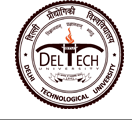‘Human kind cannot bear very much reality.’ wrote T.S. Eliot in his esoteric rambling ‘The Four Quartets’. This is perhaps just one of the reasons Man turned to myths to explain his everyday world, for a rational simplified explanation, something within the grasp of comprehension. From the world is flat to the earth being the centre of everything to the tradition of the dragon gorging on the sun, myth-making has been as old as mankind himself.
The nature of myth-making has undergone a change, and has evolved, or perhaps devolved, into what it is today. We are brought up among many myths, ones that make and break dreams, whether it is about earning what is rightfully ours or dreaming the impossible dream. At the other end is downright dejection at a System, a very popular catchphrase in our country, one that, in popular imagination, cannot be changed. Myths inform a human being about what he can or cannot achieve, sometimes distorting a world-view that needs azure pastures of imagination and creativity, flanked by knowledge. Space for a utopian perception of the world has been dramatically replaced by one marked by disillusionment. Both these world-views are opposite ends of the spectrum, needing the steady balancing act of Reality, one that is always at the centre of two mythic extremes.
Taking into account the speed at which the world is changing, it is increasingly apparent that the right education, though not the ultimate answer, is the guiding light that will enable us to retain clarity of thought and vision. We through awareness and adaptability ingrained in our foundation and with time and tradition to fortify it, seek to be reasonably grounded in reality as well in quality education and aspire towards becoming a part – however big or small – of this continuous process of the demystification of the world.
The world is on the cusp of myth and reality, in need of an instrument that can steady it. It is its own demystification that can be this stabilizing factor and make the world as real as it actually is. And in turn, it is real experience alone that can demystify the world. Our aim is to develop a culture in our college that influences all in a fundamental way, give us basic faith in an all-inclusive, multanimous, free-thinking culture, help shape our minds and define our sense of ourselves in relation to the world, and so, inevitably, influence what we do later in life. Too many Indian colleges are places for lectures, rote-learning, memorizing, regurgitation; we wish our endeavor here will be a tiny step in encouraging random reading, individual note-taking, personal tutorials, extra-curricular development, better articulation, widening of horizons and scientific temper development. |




